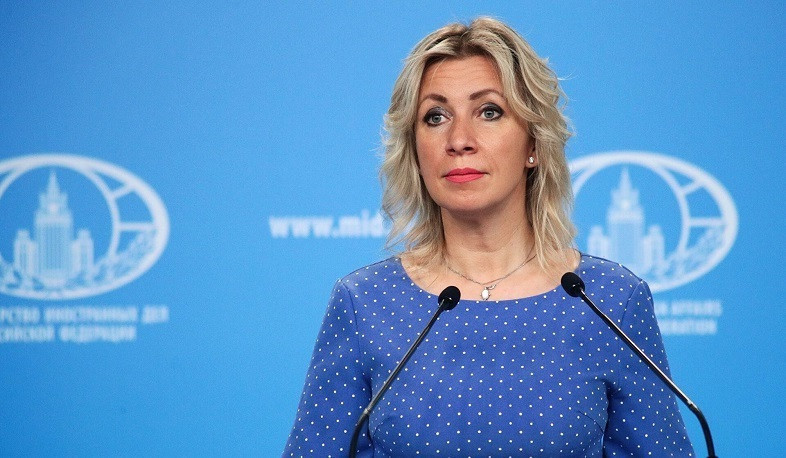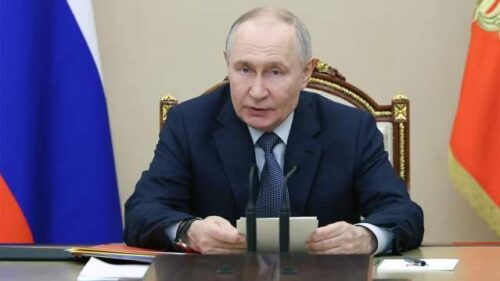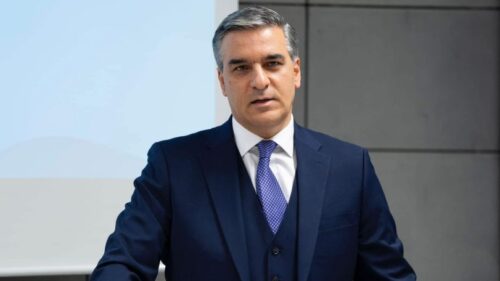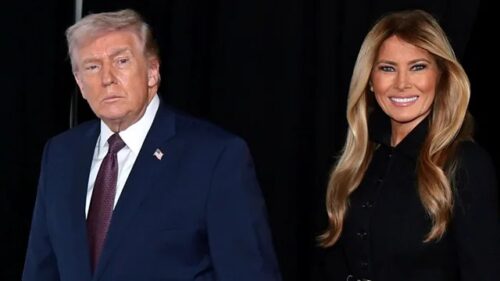
Analysis: Russia and Azerbaijan use similar narratives to undermine Armenia’s partnership with the West
New analysis from DFRLab demonstrates how leaders from Russia and Azerbaijan often promote closely aligned, and at times identical, narratives hostile to Armenia’s efforts to improve relations with the European Union. Nearly every positive development in the relationship between Brussels and Yerevan prompts a negative response from Moscow and Baku, and state-controlled or state-aligned media in Russia and Azerbaijan frequently amplify each other’s anti-Armenian and anti-EU rhetoric. This alignment indicates that both actors may be employing a similar narrative strategy to undermine Armenia’s pro-Western aspirations.
As noted, Armenia’s improved relationship with the European Union is marked by several notable milestones from the last few years. Russia and Azerbaijan share a common interest in opposing Armenia’s closer relationship with Europe. Russia aims to prevent Armenia from reducing its dependence on Moscow, while Azerbaijan seeks to preserve the regional balance of power by undermining Armenian investments in national defense and resilience. The two countries pursue these goals through coordinated action in the information space, deploying similar narratives to challenge Armenia’s shift toward the West.
In 2023, following an official request from the Armenian government, the European Union established the EU Monitoring Mission (EUMA) on Armenia’s side of the international border with Azerbaijan. Tasked with monitoring and reporting on-the-ground developments, the EUMA aims to enhance human security in conflict-affected areas and support confidence-building between Armenia and Azerbaijan. However, the EUvsDisinfo database highlights how disinformation campaigns frequently target the EUMA.
DFRLab’s analysis reveals the closely aligned rhetoric that Russia and Azerbaijan use to discredit the EUMA.
The DFRLab used the Meltwater tool to analyze mentions of the EUMA in Russian and Azerbaijani media outlets and discovered that both actively covered the EUMA in February and March 2024. Interestingly, these outlets published a similar number of articles about the EUMA on specific days, suggesting a comparable level of interest in the topic. These articles primarily contained narratives intended to discredit the EUMA.
Two instances when Azerbaijani and Russian media reporting on the EUMA reached similar peaks—on March 20 and April 4, 2023. Coverage on the topic spiked again in June 2024, following the announcement of Armenia’s purchase of CAESAR howitzers from France. Azerbaijani media prominently featured statements by Maria Zakharova, while Russian outlets extensively reported on Ilham Aliyev’s remarks on the matter. Interestingly, when President Aliyev accused France of laying groundwork for a new war in November 2023, his statement received broader coverage in Russian media than in Azerbaijani outlets. Our analysis identified 51 mentions of Aliyev’s statement in Azerbaijani media, while the Russian query yielded 111 results.
The majority of Azerbaijani-language coverage of Aliyev’s remarks spotlighted his accusations against France for practicing neocolonialism. This rhetoric aims to discredit France and its partnership with Armenia by portraying France as a hypocritical power that criticizes others while neglecting to address its own history of exploitation and colonialism.
Aliyev’s speech received extensive coverage in Russian state-controlled and pro-government media, with 111 articles published on Nov. 21 alone—double the number of reports in Azerbaijani-language outlets. This alignment reflects the two governments’ convergent interest in promoting anti-Armenian and anti-French narratives.
Unlike Azerbaijani-language media, which focused on France’s colonial history, mainstream Kremlin-controlled propaganda outlets such as RT, Komsomolskaya Pravda, Vzglyad, and Regnum echoed Aliyev’s statement and accused France of “dragging the region into war.” While mainstream Kremlin-controlled propaganda outlets focused primarily on this narrative of regional destabilization, the colonialism also appeared in propagandistic Russian outlets. Out of 111 articles published on Nov. 21, thirty articles mentioned either “colonialism” or “neocolonialism” in their headlines, amplifying Azerbaijani framing against France to Russian audiences as well.
On April 5, 2024, a trilateral meeting was held in Brussels, Belgium, involving Armenian Prime Minister Nikol Pashinyan, European Commission President Ursula von der Leyen, EU High Representative Josep Borrell, and US Secretary of State Antony Blinken. As in previous cases, Russian and Azerbaijani leaders expressed strikingly similar claims about the meeting. Ilham Aliyev claimed the Brussels gathering was intended to undermine regional cooperation and to “create dividing lines and isolate Azerbaijan.” Similarly, Maria Zakharova criticized the participants and asserted that the meeting was “against Russia.” She accused it of attempting to “draw new dividing lines in the South Caucasus” and push an anti-Russian agenda on the region.
An analysis in Meltwater showed that on the day of the trilateral meeting, Azerbaijani media outlets published over 230 articles about the event; Russian media outlets published over 130 articles and continued publishing about it in over the following days. Given Zakharova’s harsh rhetoric toward Armenia during her regular weekly press briefings, we also decided to compare mentions of Zakharova and Armenia together in Russian and Azerbaijani media. The query identified over 3,800 mentions in Russian-language news websites and over 2,100 mentions in Azerbaijani-language media. The point at which Azerbaijani coverage exceeded Russian coverage was on April 18, coinciding with Zakharova’s regular press briefing.
Interestingly, Zakharova’s April 18 briefing received minimal coverage in Russian media, with only 32 mentions identified via Meltwater. However, due to the alignment of her statements with Azerbaijan’s agenda, the briefing was covered 106 times in Azerbaijani-language media.
In September 2024, the European Union and Armenia began visa liberalization talks.
Once again, Russia and Azerbaijan disseminated similar negative messages about this event. The Russian foreign affairs ministry claimed that a visa-free regime with the European Union would “lead to a substantial outflow of young and economically active people to Europe and have a negative effect on the Armenian economy and security.” Commenting on this event, Zakharova asserted that Europe would deliberately delay the visa liberalization process, making Armenians “hostages of the Europeans’ regular political intrigues.” Along similar lines, the official Azertag news agency asserted that visa-free entry to Europe would worsen Armenia’s demographic situation and lead to the “emptying of the country.” Pro-government Azerbaijani experts made similar arguments and predictions.
“The alignment of narratives in Russian and Azerbaijani media underscores a common strategy to undermine Armenia’s pro-Western aspirations. Through joint disinformation campaigns, both nations seek to delegitimize Armenia’s cooperation with the European Union. Their shared efforts serve as a reminder of the geopolitical complexities Armenia faces in its pursuit of independence and democratic reform,” analysts concluded.


